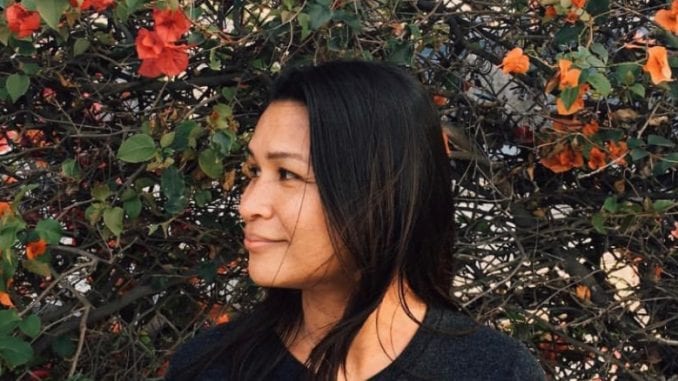
Selina Viguera of Blue Bottle Coffee discusses how she discovered specialty coffee, her love for service, and how we can inspire more career baristas.
BY VALORIE CLARK
SPECIAL TO BARISTA MAGAZINE ONLINE
Cover photo by @exodusfromashes
Selina Viguera is well-known in specialty coffee mostly for being an amazing and dedicated barista. She leads the Barista Guild Café at Specialty Coffee Expo and U.S. CoffeeChamps; she’s been a lead barista at TED in Vancouver, as well as TEDxWomen and TEDxMed; her latte art is featured on the Pacific Barista Series Oat and Rice packages. And she’s been “the face” of Blue Bottle, especially in her adopted home in Los Angeles, for years.
We sat down and talked with her about how she got into coffee, why she loves being a career barista, and much more.
This interview has been edited and condensed for clarity.
Valorie Clark: How did you start working in coffee?
Selina Viguera: Literally coffee just fell on my lap. I graduated college in the Philippines, and it’s such a different culture there. It’s not about work experience, it’s about education. So it took me a while to find my first job here. I actually went back home to take some web design classes just for an excuse to go back home because I was bored and depressed here.
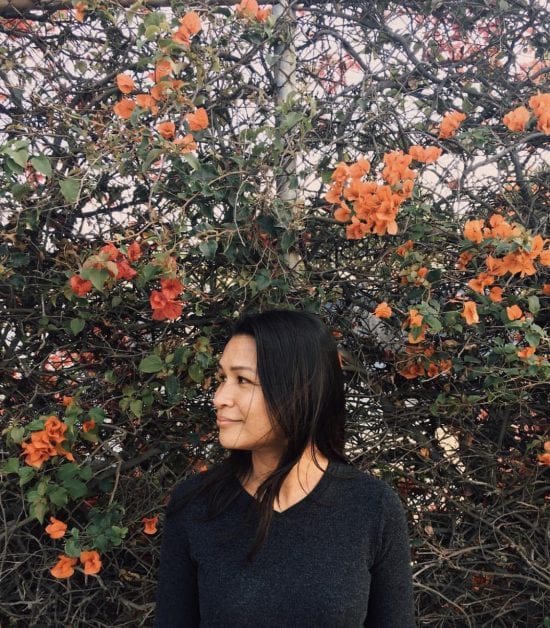
When I came back, a friend of mine got me a telemarketing job, which was horrible. But I met somebody there whose roommate worked for an internet café, so they helped me get a job there. There was something about working in the café, the interactions, putting drinks together (even though I drank none of them; the coffee was horrible), but I had a thing for doing the best that I could. I really loved it.
How did you make the transition into specialty coffee?
My best friend Santiago and I started learning about coffee together, back when he was fresh off the boat from Argentina and I was fresh off the boat from the Philippines. It was at Cyber Java, this internet cafe in Hollywood (which he now owns, it’s now called Tiago). It was back in the day when Barista Exchange was still a thing. We were so obsessed, we’d read random things separately then go to work to experiment with ideas like shocking the espresso, stuff like that. We taught ourselves latte art, became more attuned to a whole world of better ways to do things.
We got a mailer for the Seattle Coffee Fest in 2008, so we both went. We had no idea that there was a world of specialty coffee until then. When we came back, we completely flipped the shop—got rid of auto-brewers, stopped pre-grinding, got rid of 20 oz. cups, stopped doing all the things you learn not to do today. We lost so many people in the beginning because they hated it. They hated that they had to pick a coffee and wait for it to be made individually. But then we started gaining popularity because of those same things. We were probably the first specialty coffee shop in Hollywood.
Once we realized that [there are better ways to make coffee] we started researching roasters and started realizing that all of these roasters offer something—training with wholesale, stuff like that. So Barefoot Coffee was our first specialty-coffee mentor, back when Tony Serrano and Andy Newbom were still there. I built my roots through Barefoot. It was the first time I had formal training by people who knew specialty coffee.
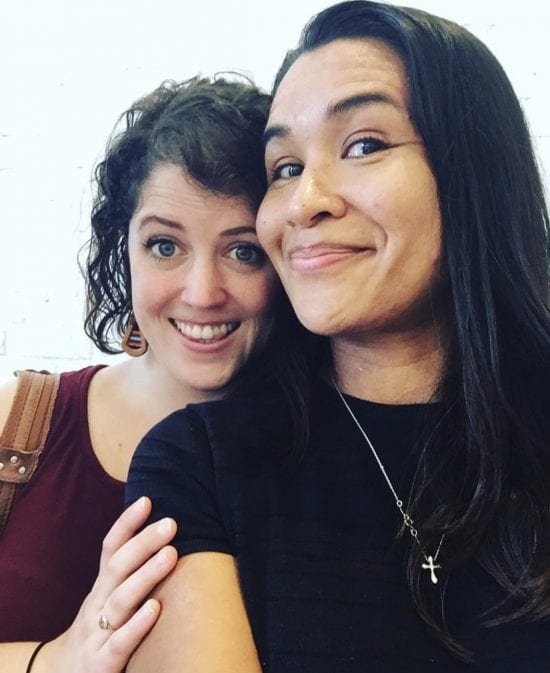
You’ve been with Blue Bottle nearly nine years now. What drew you to Blue Bottle? What keeps you there?
We hit up a bunch of different roasters to sample their coffee and see what we liked. It was random—the [Blue Bottle] wholesale person back then, Luisa Alberto, was in town visiting. She dropped off some samples but said that they weren’t really doing anything in L.A. other than one account. But she took my email. (Fun fact: That spot where Equator Books was is now the Abbot Kinney Blue Bottle café that I’m the café leader at.)
Fast forward to two years after, I had moved to the Bay because I’d been driving up every week to visit my friends. I put my resume out to a couple Barefoot accounts, but randomly Luisa hit me up the same week saying, “I don’t know if you remember me, but something about your personality really stuck with me. I think you’d be a good fit for the company. Would you consider being an L.A. rep for us?” Just like that, I got a job that I didn’t expect.
What drew them to me back then is what still keeps me here now: Values alignment.
I worked at the Ferry Building and loved it. But mid-November 2013, I had to quit Blue Bottle because I’d had it with the Bay. Even though Bryan Meehan had already attached my name to Abbot Kinney, nothing was actually happening yet. So I moved to L.A. and was basically off-boarded. I interviewed with other roasters, and when Blue Bottle heard that they swooped me back up just in time. They had me doing market research, finding our almond milk reps down here, a local chocolatier, stuff like that.
And then we bought Handsome Coffee, which was sudden. I became the first Blue Bottler on the scene. I was the first implant, I was the first lead barista for Arts District [the former Handsome space] during that transition. It was such a weird time, but we got through it.
As soon as Abbot Kinney opened, I had the option to be café lead or lead barista there. I opted to be lead barista because I wanted to run that front of house. It’s still my favorite thing now. It’s what brings me joy. I love being the face of a shop. I’m a nester, that’s why I’ve been here five years now, and I have no plans of going anywhere. Cultivating that sense of pride and sense of community is my jam.
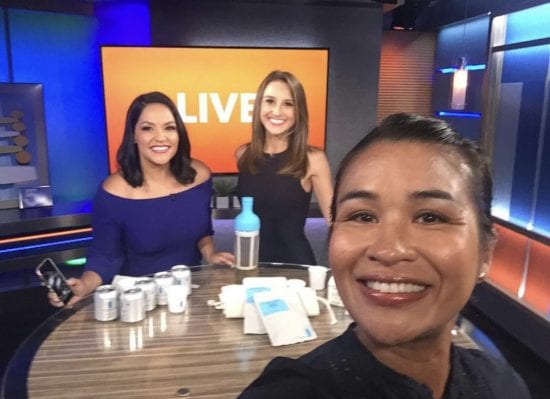
I like training. Being a café leader I get to do the technical training that I’ve always loved, but it’s not in the lab. It’s dynamic. I get to do literally everything. I have a business degree, and this lets me apply all of that. I get to be a trainer but I get to see my baristas all the way through. I get to instill a sense of pride in them. I get to continue to build my community around this shop. I get to say what style of hospitality I’m most proud of and that I want to see, and hear, and feel.
Sometimes I feel like people expect me to be in a higher role by now. I’m going on nine years in June. But when I take a step back and don’t worry about what I think other people think of me, I really have that barista mentality. This is my craft, this is what I do. I am content. I am doing what I love and I’m happy with what I do. I don’t need to climb a ladder, I don’t find a sense of fulfillment in that, because for me working in coffee is about being around the coffee.
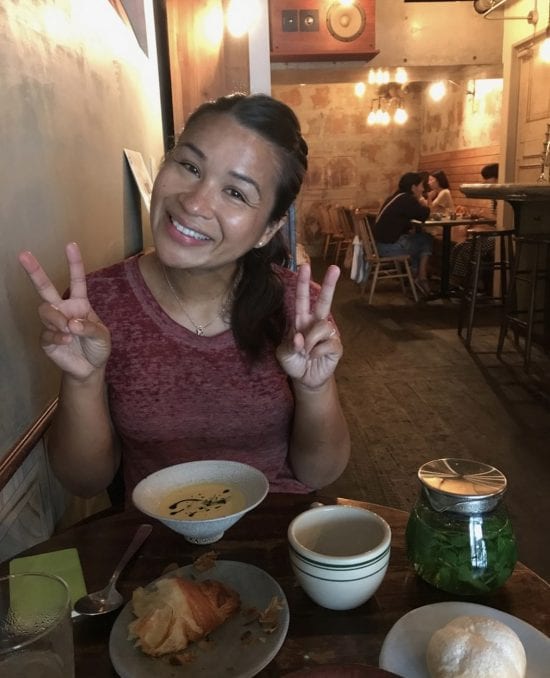
You talk about being a career barista and how much you want to keep doing it. How do you think we can cultivate more career baristas like you?
We have to make this job as a barista sustainable. The reason why people move up is because “barista” is always an entry-level job everywhere. And even though we try to stay above minimum wage [at Blue Bottle], it’s still an entry-level job. And it’s seen as an entry level job. Becoming a café leader has allowed me to still do what I love and also made me life more sustainable for me. What I’m paid is more sustainable.
So maybe that job on its own becomes a sustainable way of life for baristas, so that they can take their profession seriously and live off of that, and be happy to do that. Unless people really have their eyes set on a certain role, very rarely do you find baristas that only want to be baristas. When you find a 40-year-old barista that’s only barista-ing, people thinks that that’s weird. “Wow you can live like that?” You know what I mean?
Maybe it’s even about elevating how people see baristas and what we do. It’s a huge responsibility. Every time I’m around Aida Batlle, she reminds me, “I need you to stay where you’re at. My work is nothing if you guys don’t do me justice. If you guys don’t know how to talk about the coffee, if you ruin it and it doesn’t taste good, all my work is out the door, it’s garbage.” That’s stuck with me. It’s why I work the way that I work. We have a big impact and big responsibility, even though it’s seen as an entry-level job. We are the last hands to touch [the coffee]—that’s cliche, but it’s the truth. We make or break this whole chain.
It sucks that it’s an entry-level job, not one that can be taken seriously, as a legitimate profession. It would be awesome if it could be. If I could just worry about coming in and being the most amazing barista every single day. … Who wouldn’t want that? If all I get to do is continue to work on my craft, build relationships, and continue to generate more and more regulars, wouldn’t that be the best dream job ever?
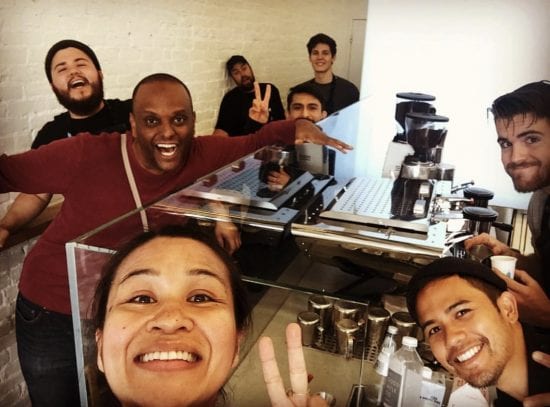
You do a lot outside of Blue Bottle too. How did you start getting involved with the wider industry?
Unlike other people, I didn’t get my name out there by competing. I first volunteered with SCAA by bussing at competition. Nationals in 2014 in Long Beach was the first time I volunteered for the coffee bar, and Talya Strader was the lead. We had volunteers not show up, so I stepped up and Talya and I rocked that coffee bar. When [the chance to work as a barista at] TEDxWomen came up, Talya called me and asked if I wanted to be a lead barista for that. I couldn’t believe it. I was working among people who had competed, and I was supposed to lead them?
All of a sudden I was asked to volunteer and lead the coffee bar for Barista Guild. And now that’s become my baby. I’m always down for nationals and Expo. It’s a lot of work, I’m building and breaking down that bar by myself, after working a five-day week at Blue Bottle and going back to another five-day week. But I get to see all the people who I love that I’ve worked with before.
I don’t have my name out there because I won something, but because I’ve worked with so many volunteers now. I walk through a door and I know so many baristas and it feels like family to me. It’s a constant cultivation of amazing people around me. That’s why I do it. It’s exhausting, but I love it. I like being known for how hard I work and how people feel when they work with me.
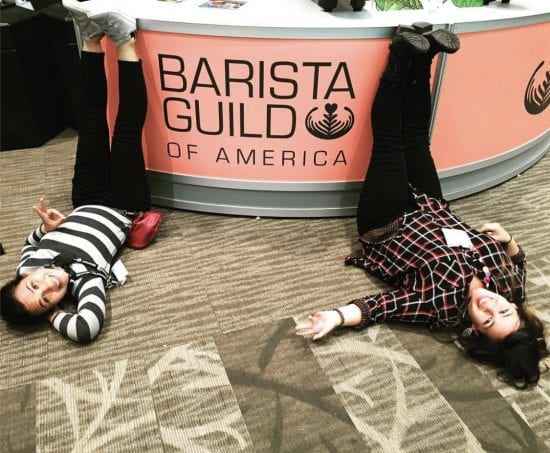
What would you like to see the industry as a whole get better at?
There’s a lot of talk about gender equality right now, but it’s hard for me to speak on those things from my truth because I’ve really been blessed in my career. I’m a minority, I’m a Filipino woman, and I’ve found a company whose values I completely 100 percent align with. And that’s why I’ve thrived. I’ve never been doubted, I’ve never been second-guessed, I’ve always been valued here. That’s why I stay.
So it’s what we were talking about earlier—I wish that there was more value to what we did. More of a sense of pride. How many people do we get walking in that have no idea about specialty coffee? They complain that $3.50 for a cup of coffee is too expensive. Meanwhile Aida is telling me about how small their crop was this year. She’s someone fortunate throughout her career to have met the right people. But nobody else is in that boat.
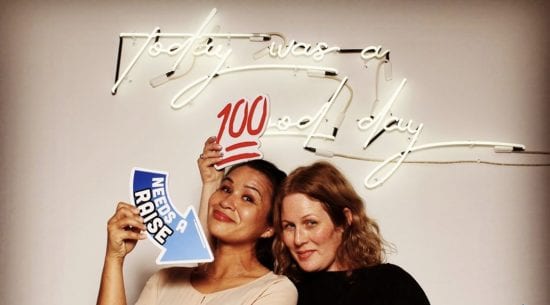
I fear that there won’t be coffee until I get old. What’s motivating farmers to continue to do this and pass it on to their kids? Kids are already like, “Nah, not going to do that Pop. There’s no money.” It’s at both ends of the chain: What’s motivating them and what’s motivating baristas to continue? There’s a big disconnect, and I wish that both ends of the chain had sustainability.
In areas like New York and SoCal, the cost of living is so high. What’s motivating people to be a barista because it’s actually what they want to do? Not because they can do this and juggle another two jobs to have a life? And what kind of life is that if you have to work three jobs to pay rent? We need to make this job more sustainable.
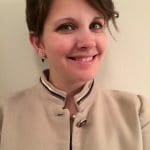
ABOUT THE AUTHOR
Valorie Clark (@TheValorieClark) is a freelance writer with a background in specialty coffee. She is based in Los Angeles.

